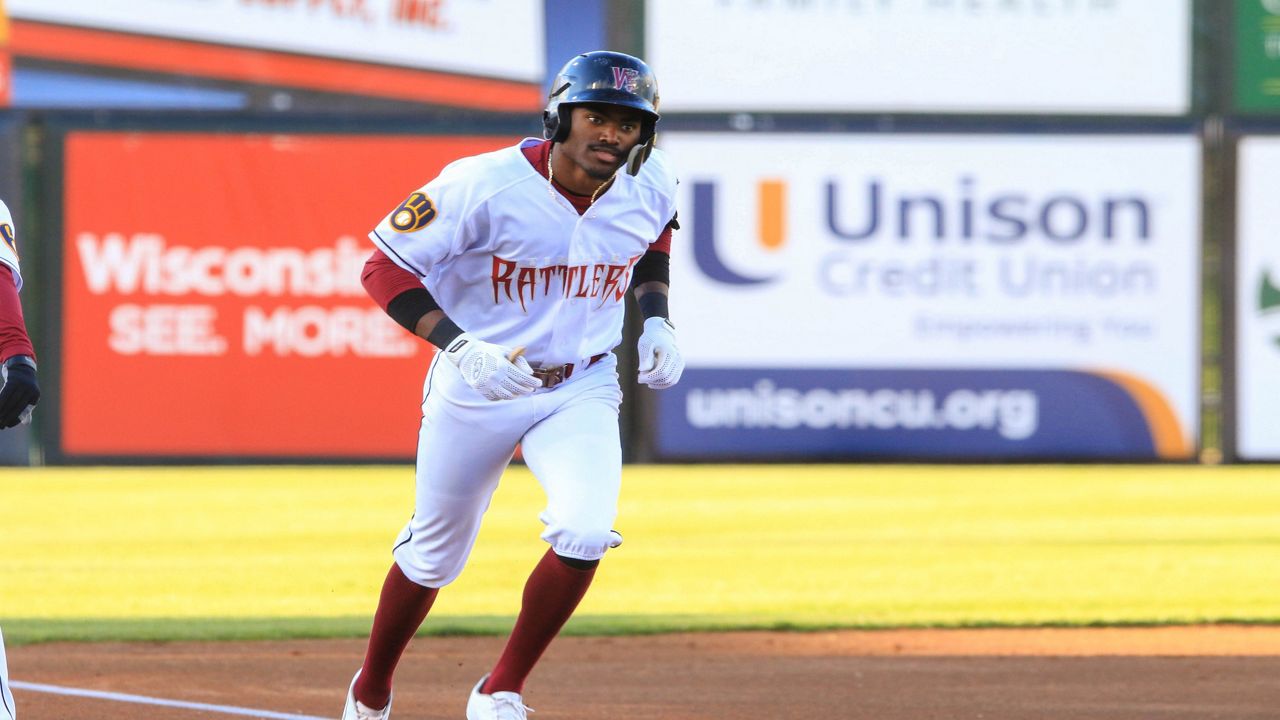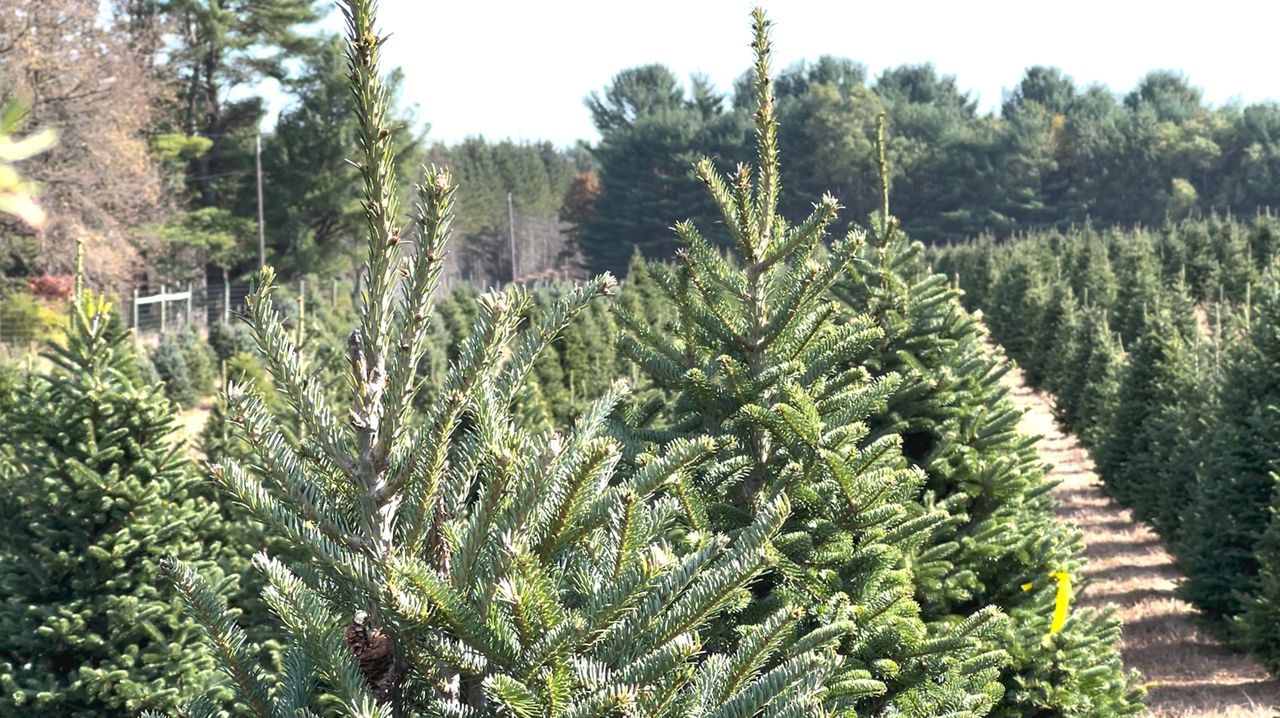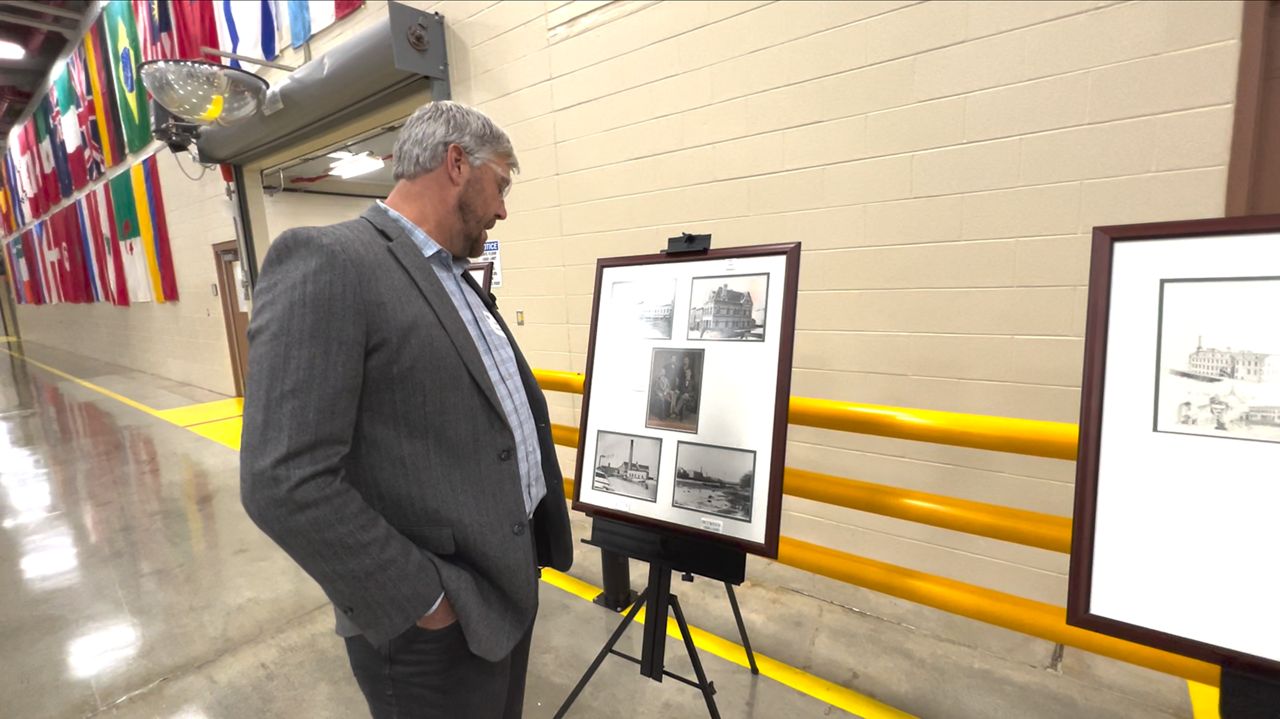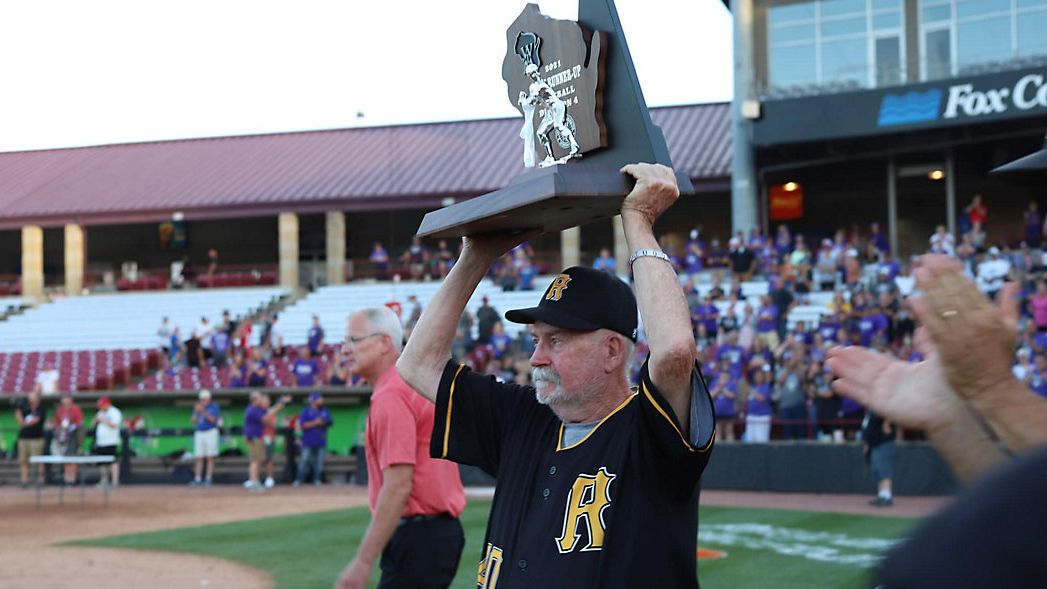GRANDE CHUTE, Wis. — When you scan almost any list of the Milwaukee Brewers' top prospects, Korry Howell's name cannot be found.
But it may not matter.
Howell, in his second year with the Wisconsin Timber Rattlers and a summer removed from adding 10 pounds to his slender frame, is quickly making a name for himself by getting noticed for his play on the field, not where his name might be on a list. Earlier this season he became only the second player in Timber Rattlers' history — current Milwaukee Brewer Tyrone Taylor is the other — to be named a MiLB Player of the Month.
And he continues to put up some of the best offensive numbers in the High-A Central League while successfully transitioning from shortstop to centerfield.
Age: 22.
Height/weight: 6-3, 180.
Bats/Throws: Right/Right.
Acquired: 12th round of the 2018 MLB Draft.
Miscellaneous:
- Was named High-A Central League player of the month for May, leading the league in batting average (.326), OPS (1.038), total bases (53), slugging percentage (.616) and led all of Minor League Baseball with 25 runs scored. He also hit six home runs, which was second in the league.
- The only other Timber Rattlers player to win a MiLB player of the month award was Tyrone Taylor in June of 2013.
- Through Thursday, ranked 7th in the High-A Central League in batting average (.287), was 10th in OBP (.375), 5th in slugging percentage (.534) and 3rd in OPS (.910). He also has nine home runs and 11 stolen bases in 14 attempts.
FAVORITES
Team growing up: Chicago White Sox.
Player: You can name anyone from that whole era, from 2005-07, on those White Sox teams.
Job as a kid: Job?
Walkup song: “Many Men” by 50 Cent. It’s a great song.
TV show: "Sons of Anarchy"
Movie: "Benchwarmers"
Q&A
Q: Did you play any other sports at Homewood-Flossmoor High School?
A: I played basketball growing up and all the way through, but as soon as I got to high school my dad said you’ve got to pick one sport, and baseball and basketball season for us runs right into each other, so I just choose baseball. I always liked basketball more, but I loved baseball and I was better at baseball.
Q: How did you wind up at Kirkwood Community College?
A: I was at a local high school and one of their coaches, their hitting coach, Ron Benich, was there. He saw me and was chatting with my dad, and then I had a tournament down in Cedar Rapids (Iowa) two weeks later, and I made my visit that day and committed probably two weeks after that.
Q: Were you at all disappointed you didn’t have any offers from higher profile schools?
A: I wasn’t a highly recruited kid out of high school. I didn’t really blossom, I really didn’t grow into my body until my senior high in year school or freshman year in college. But no, I was just excited for the opportunity. I didn’t think any of this could be a part of my life. Of course I always wanted it to be. But going into college, no. I thought one, two years there and if anything happens after that, it happens. Just organically just let it happen. But, no, I wasn’t going to force anything. This was always the dream, and it kind of played itself out.
Q: You were scheduled to go to the University of Iowa on scholarship before getting drafted by the Brewers, did you feel you were ready or was the opportunity too good to pass up?
A: It was never, ‘I’m drafted, I’m going,’ like people like to say all the time. It wasn’t as easy as the outside world may think. It’s not as easy as flipping a switch and saying yes or no. There’s a lot of things that go into it. It’s money, it’s family, it’s relationship, it’s location of living; it’s all that stuff that goes into making a decision to signing or going to college. I think we made the right decision for myself.
Q: How would you describe your first two years in professional baseball?
A: The first year I played in the Arizona (rookie) League. It was hot, dry; wasn’t used to that. And then I came to Appleton in ’19. It was a big adjustment. Just getting my body ready for a full season.
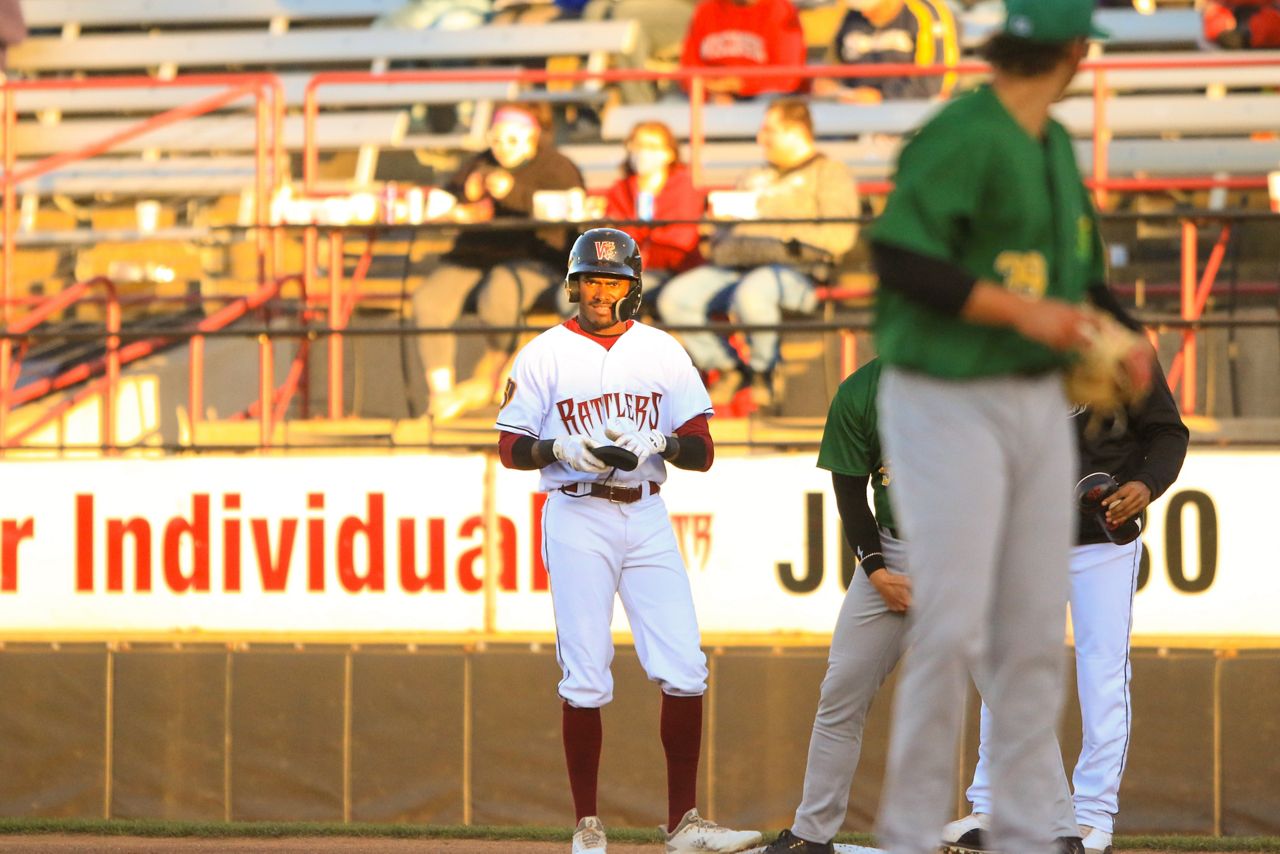
Q: You played shortstop nearly your entire life, and when you come to pro ball the Brewers wanted you to transition to centerfield. What did you think?
A: I always knew it was probably something, in the back of my head, it was something that I was going to be able to do in the long run. But being able to do both at the very high level is beneficial to me. When Matty (Rattlers manager Matt Erickson) told me I was going to play centerfield when I first got here and I said, ‘OK.’ He gave me a glove, and the first game I was out there playing centerfield. Never played it before. Made some adjustments throughout the past two years and getting better at it, and still getting my reps in the infield.
Q: What was the most difficult thing for you in the transition?
A: Just learning the routes. Routes are everything; your first steps and routes. That was a big adjustment for me. Ball was hit in the air, when I first got out there, I’d want to run straight to the ball. You can’t do that. It’s not like the infield; you cut the ball off. You can’t cut the ball off in the air. You’ve got to play the wind, you’ve got play the angles, play it off the wall if necessary, different fields and different dimensions; it’s getting used to being out there with all the space and actually having to run and get to a spot.
Q: Knowing how much the Brewers’ organization loves players who are versatile, how important has this been for you?
A: It’s big. Definitely a thing that’s been imprinted on me by my team around me back home, my family, my mentors that I look up to, my coaches that are here and back home; they stress the importance of keeping up with both things. Being able to do both can only help, it’s going to hurt.
Q: You’ve talked about revamping your game, or turning it upside down, last summer. What prompted you to do that?
A: In ’19 I got overwhelmed really easily. I would say I’ve matured a lot over the past year-and-a-half, two years. When I say that, as far as my hitting, my approach is completely different. When going up to the plate I’m a lot more confident. I know myself, I’m a lot more confident as a hitter. I’m not trying to do too much as a hitter. Like I said, I’ve matured a lot the past two years or so and I think mentally that has gotten me in a different spot.
Q: When you say you felt overwhelmed, what did you mean exactly?
A: The ups and downs of pro ball. The ups and downs of a full season. The ups and downs of your body not being 100 percent every single day. College, we played on weekends and Wednesdays. Pro ball we play every single day, and I wasn’t used to that. Just overall stresses of successes and failures. Minimizing the lows, and I think that’s where I’ve matured a lot this year, too.
Q: You only hit two home runs in your first two years of pro ball, but you’ve since hit the weights and added 10 pounds during the offseason. At what point did you realize the work you put in was paying off?
A: I got about 20-plus games last year in the independent league (City of Champions Cup in Illinois) and I didn’t fully see that, ‘Hey, what I did this offseason may have worked a little bit,’ until spring training. When I got down to spring training I had the confidence in what I did, so I just rode that out. Whatever I did this offseason, I brought that right into spring training to hit the ground running. Then I put a couple of balls in play and I actually could see the ball was jumping off the bat a little bit harder so I knww I got stronger, and the ball was carrying, so I know I’ve done something right this offseason. And then it’s continued on to this season.
Q: What did that mean to you to be named Player of the Month?
A: It was good. It was definitely a surprise. I didn’t surprise myself. At the start of the season I didn’t know, well, I had the confidence and I knew I had the ability to put it up, those kind of numbers, but it was never really; it wasn’t a goal to be player of the month. But it happened and now I’m just trying to keep it going.
Q: I know you pass on a lot of your successes to your head coach at Kirkwood, Todd Rima, as well as the hitting coach, Ron Benich. Why is that important to you?
A: Those guys got me here. I wouldn’t be here without them, and the coaches before them, and the coaches I had when I was growing up since I was nine years old and who saw me in T-ball; I dedicate my successes to all of them. Without them, I wouldn’t be here.
Q: People love Top Prospects lists. You’re currently not on the Brewers’ Top 30 list. Is that something you’d like to be on, or has your success so far this season, and the notoriety you’ve received because of it, mean more to you?
A: That doesn’t matter to me. A ranking is just a number. It’s just a number next to a name. I don’t try to carry that with much tangible evidence compared to what is happening on the field. It is what it is. I just try and go out and have success anyway possibly can to help the team win.
Q: From your viewpoint, what’s the hardest part about this game?
A: Arguably it’s the most angry, the most mad that I can ever be in life; but it’s also the greatest thing ever. The successes are high. You’re lows are low; it is what it is. You’ve just got to try and battle through that. But baseball, it’s a sport of failure. If you fail seven out of 10 times, they say, you’re a hall of famers at that point.
Q: So if you were hired as a major league team’s general manager, and you get to choose one player to build your team around, who do you pick?
A: One guy? (Fernando) Tatis Jr. Tatis, he is unreal and he’s, what, 21 (actually 22). That guy’s unreal.
Q: Best advice you’ve received?
A: I was probably about 14 years old, one of my summer ball coaches, we had a tournament, it was a Sunday afternoon, I was hot, like four-four, with a couple of doubles, coming up for my fifth at-bat of the game. And he’s yelling at me from the coach’s box, ‘You ain’t done nothing. You ain’t done nothing. Don’t be satisfied.’ Ever since then I keep that in the back of my mind. Whatever happens on the field, don’t be satisfied for the next at-bat because you could always do something greater.
Q: Who would you like to tend bar with?
A: Frank Thomas. I grew up a die-hard White Sox fan and he is somebody I always looked up to on and off the field. So yeah, 100%.
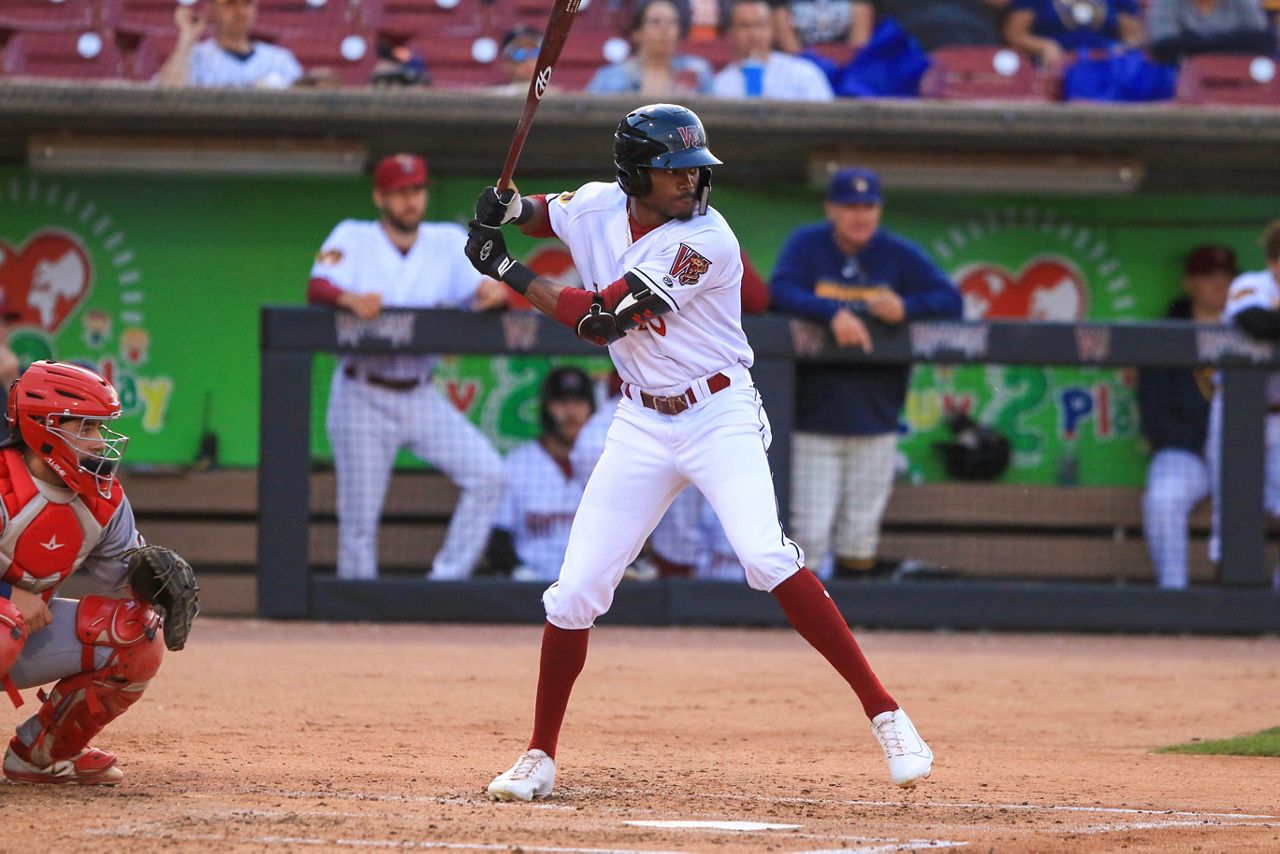
Q: How do you measure success?
A: It’s different. I can go 0-for-5 in a game but, four of those at-bats were great at-bats. Four of those at-bats were maybe six-pitch at-bats, fought off some good pitches with good swings, and then maybe just hit one right at the guy. As long as I feel good after the at-bat, no matter the result. That’s how I view how successful that was.
Q: If you had one day to pick the brain of any major leaguer, past or present, who would it be and why?
A: Derek Jeter actually, he was one of my favorite players growing up. Another one is Jimmy Rollins. Jimmy Rollins is the reason I wear No. 11. He was another one of my favorite players growing up. I literally played shortstop and wore No. 11 because of him. I didn’t get the switch-hitting part but everything else, yeah. When I started watching baseball, he was one person I looked at and said, ‘Yeah, he’s cool.’
Q: Craziest thing you’ve seen on a baseball field.
A: Back in ’19 we had like a mini-rain, hurricane storm going on and the left-center field wall fell down. Me, and I think it was (Thomas) Dillard, were sitting their holding the wall up (until someone could come and fix it). The wall just fell off the fence.
Q: What is your must have item in the refrigerator?
A: Gatorade. Gotta have Gatorade.
Q: What’s the one thing you’ve learned from Matt Erickson that has helped you the most?
A: He preaches routines. He preaches routines and preaches the consistency of knowing yourself and the routine and staying locked in on each and every at-bat, staying locked in to the game, staying locked in to the difficulties of the game. He preaches, ‘Hey, there’s going to be hard times but as long as you put your work in, and as long as you’re prepared, you’re going to have your successes.’
Q: Favorite thing about Appleton?
A: The people. The people love the Timber Rattlers. It’s crazy to me. I’ve never seen … I grew up in the Chicago area so we had multiple teams that we could root for. But people love the Timber Rattlers and that’s probably the most wholesome thing of the town.
Story idea? Contact Mike Woods at 920-246-6321 or at: michael.t.woods1@charter.com





